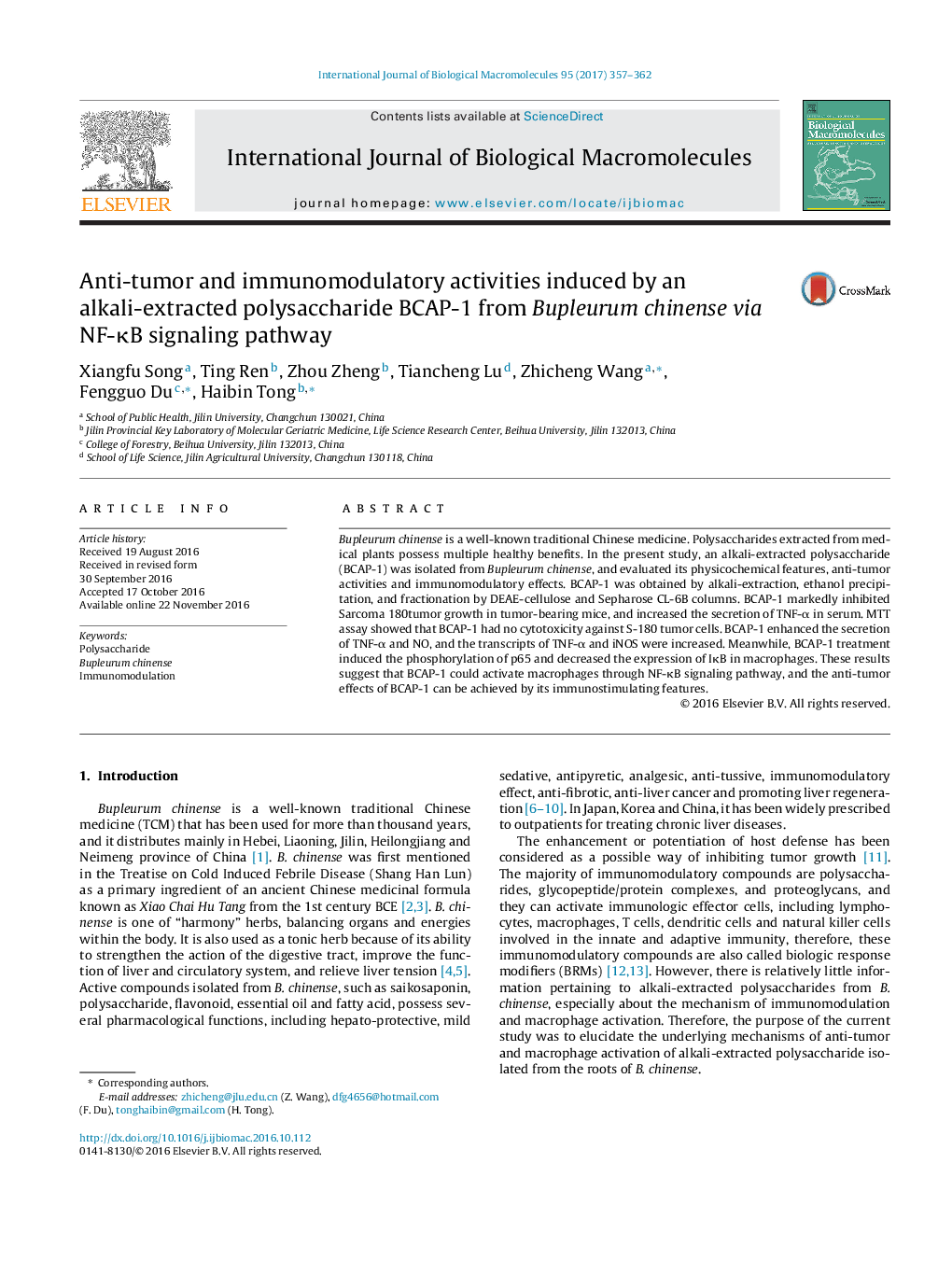| Article ID | Journal | Published Year | Pages | File Type |
|---|---|---|---|---|
| 5512415 | International Journal of Biological Macromolecules | 2017 | 6 Pages |
â¢BCAP-1, an alkali-extracted polysaccharide from Bupleurum chinense, inhibited tumor growth in vivo and increased TNF-α in serum.â¢BCAP-1 treatment induced the phosphorylation of p65 and decreased the expression of IκB in peritoneal macrophages.â¢BCAP-1 activates macrophages through NF-κB signaling.â¢The anti-tumor effects of BCAP-1 can be achieved by its immunostimulating property.
Bupleurum chinense is a well-known traditional Chinese medicine. Polysaccharides extracted from medical plants possess multiple healthy benefits. In the present study, an alkali-extracted polysaccharide (BCAP-1) was isolated from Bupleurum chinense, and evaluated its physicochemical features, anti-tumor activities and immunomodulatory effects. BCAP-1 was obtained by alkali-extraction, ethanol precipitation, and fractionation by DEAE-cellulose and Sepharose CL-6B columns. BCAP-1 markedly inhibited Sarcoma 180tumor growth in tumor-bearing mice, and increased the secretion of TNF-α in serum. MTT assay showed that BCAP-1 had no cytotoxicity against S-180 tumor cells. BCAP-1 enhanced the secretion of TNF-α and NO, and the transcripts of TNF-α and iNOS were increased. Meanwhile, BCAP-1 treatment induced the phosphorylation of p65 and decreased the expression of IκB in macrophages. These results suggest that BCAP-1 could activate macrophages through NF-κB signaling pathway, and the anti-tumor effects of BCAP-1 can be achieved by its immunostimulating features.
